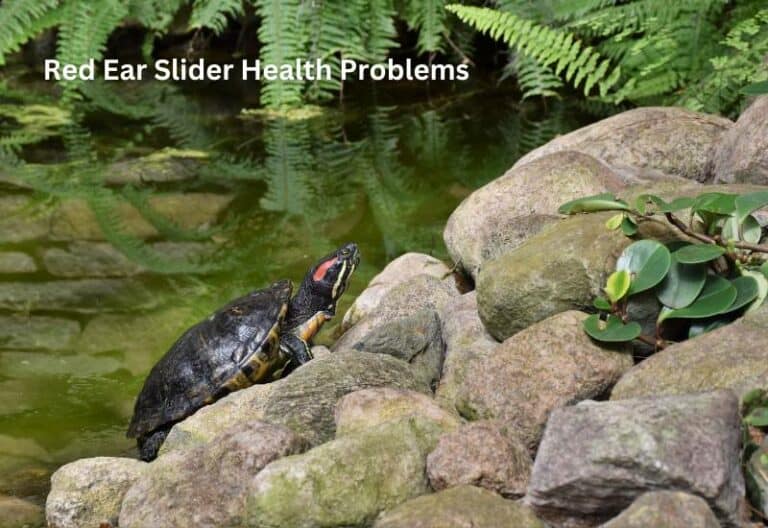Diseases Turtles Can Get From Plastic: A Revealing Insight
Turtles, magnificent creatures of the sea, face an alarming threat that has detrimental effects on their health—plastic. But what diseases can turtles get from plastic? The harsh reality is that turtles, when exposed to plastic pollution, are susceptible to a range of diseases that can have devastating consequences. In this article, we will delve into the dangers of plastic for turtles, uncovering the diseases they can contract and exploring potential solutions to protect these remarkable reptiles. So, let’s dive in and understand the grave impact of plastic on the well-being of our beloved marine friends.
What Diseases Can Turtles Get from Plastic
Plastic pollution is a significant threat to marine life, including turtles. With their natural habitat increasingly contaminated with plastic waste, turtles are at risk of various diseases and health issues. In this article, we will explore the diseases that turtles can contract from plastic and the implications for their survival.
1. Plastic Ingestion
Plastic pollution in the oceans poses a severe threat to turtles, primarily because they often mistake plastic debris for food. When turtles ingest plastic, it can lead to various health complications, including:
Gastrointestinal Obstruction:
– Plastic can accumulate in the digestive system, causing blockages that prevent the turtles from properly digesting food.
– This obstruction can lead to malnutrition, weight loss, and even death if not addressed.
Internal Injuries:
– Sharp edges or large plastic items can cause internal injuries to the digestive organs of turtles, damaging their delicate tissues.
Chemical Contamination:
– Plastic often contains harmful chemicals, such as phthalates and bisphenol A (BPA), which can leach into the turtles’ bodies when ingested.
– These chemicals can disrupt hormone regulation, weaken their immune system, and lead to various health problems.
2. Entanglement
Turtles can also become entangled in plastic waste, such as discarded fishing nets, ropes, or six-pack rings. This entanglement can result in:
Injuries:
– The tight grip of plastic around a turtle’s body can cause deep wounds, leading to infections or even limb loss in severe cases.
– Once injured, turtles become more vulnerable to infections and diseases.
Restricted Movement:
– When tangled in plastic, turtles may struggle to swim freely, limiting their ability to find food, reproduce, or escape from predators.
– This restriction in movement can significantly impact their overall health and well-being.
3. Shell Deformities
Plastic pollution can contribute to the development of shell deformities in turtles, which can have serious implications for their survival. Here’s how plastic affects their shells:
Malnutrition:
– Turtles that ingest plastic are at risk of malnutrition due to gastrointestinal obstruction.
– Lack of essential nutrients can weaken their shells, making them more susceptible to deformities and diseases.
Impaired Growth:
– The presence of plastic chemicals in the turtles’ systems can interfere with their normal growth and development.
– This can lead to abnormal shell growth, making them more vulnerable to injuries and diseases.
4. Immunodeficiency
Turtles affected by plastic pollution often experience compromised immune systems, leaving them more susceptible to diseases and infections. Here’s how plastic affects their immunity:
Chemical Toxicity:
– The chemicals released by plastic pollution can weaken the turtles’ immune response, making them less able to fight off infections.
– This can lead to an increased susceptibility to bacterial, viral, and fungal diseases.
Inflammation and Stress:
– Ingested or entangled plastic can cause chronic inflammation and stress in turtles.
– Prolonged exposure to these conditions can suppress their immune systems, making them more susceptible to various diseases.
In conclusion, turtles face numerous health risks due to plastic pollution in their environment. Plastic ingestion, entanglement, shell deformities, and immunodeficiency are just some of the consequences turtles can experience when exposed to plastic waste. Urgent action is needed to prevent further plastic pollution and protect these magnificent creatures and their fragile ecosystems.
Frequently Asked Questions
What diseases can turtles get from plastic?
Turtles can suffer from several diseases as a result of ingesting or entangling themselves in plastic. Some common diseases linked to plastic pollution include:
How does plastic pollution affect turtles’ health?
Plastic pollution can have severe consequences for turtles’ health. When turtles mistake plastic debris for food, it can lead to various health issues such as:
Can turtles get infections from swallowing plastic?
Yes, turtles can develop infections from swallowing plastic. When they ingest plastic debris, it can cause internal injuries that may become infected. These infections can be life-threatening and affect various organs, including the intestines and stomach.
What are the symptoms of plastic-related diseases in turtles?
The symptoms of plastic-related diseases in turtles vary depending on the specific condition. However, some common symptoms include:
Are turtles more prone to diseases due to plastic pollution?
Yes, turtles are more prone to diseases due to plastic pollution. Plastic debris can weaken the immune system of turtles, making them more susceptible to various diseases and infections.
Can turtles die from plastic-related diseases?
Yes, turtles can die from plastic-related diseases. Ingesting or getting entangled in plastic debris can cause severe injuries, infections, and digestive issues that can be fatal if not treated promptly.
How can we help protect turtles from plastic-related diseases?
We can help protect turtles from plastic-related diseases by taking the following actions:
Final Thoughts
Turtles are highly susceptible to various diseases caused by the ingestion of plastic. These diseases can severely impair their health and overall well-being. Plastic ingestion can lead to gastrointestinal blockages, causing malnutrition and starvation. It can also result in infections and inflammation, compromising their immune system and vital organs. Furthermore, the presence of toxic chemicals in plastic can have detrimental effects on turtles, disrupting their hormonal balance and reproductive capabilities. To protect these fascinating creatures, it is crucial that we raise awareness about the harmful impact of plastic pollution and take immediate action to reduce our plastic consumption and properly dispose of plastic waste.
